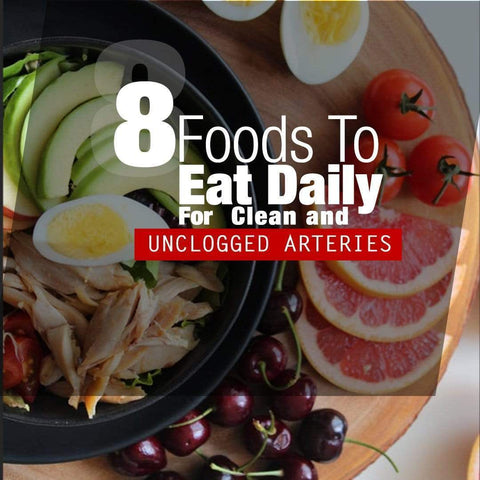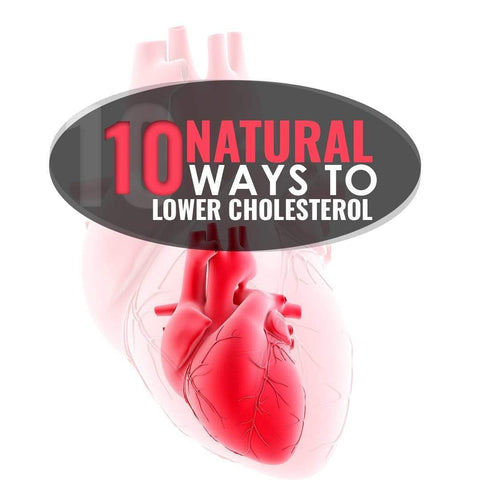
Cholesterol is a type of fat. And it’s not all bad.
Your body needs cholesterol. It makes up an important part of of the membranes of your cells, is a precursor to sex hormones like testosterone and estrogen, and is needed for the synthesis of a critical hormone -”vitamin” D.
What’s Bad About Cholesterol?
So why have you heard that cholesterol is bad? Well, under certain circumstances, cholesterol can become a threat to your cardiovascular health.
There are two main ways in which cholesterol can become a problem:
- When cholesterol in your blood becomes damaged by oxidation and glycation
- When your LDL or “bad” cholesterol becomes elevated and “good” HDL cholesterol is lowered
When cholesterol becomes damaged by oxidation or excessive sugar exposure (glycation), it can penetrate and damage your blood vessels, which is one of the first steps in the development of dangerous plaques that can block your blood flow and lead to strokes or heart attacks.
“Bad” LDL cholesterol is more easily damaged than HDL cholesterol and therefore poses a threat to your heart health by initiating plaque buildup.
Exclusive Bonus! Download the FREE report ‘5 Top Supplement for Optimum Health’ by clicking here.
Natural Remedies To Lower “Bad” Cholesterol
You don’t have to be a passive victim of “bad” cholesterol. Many natural remedies can lower your levels and protect your heart health.
1. Extra Virgin Olive Oil

Olive oil contains plenty of fat - but it’s the good, healthy omega 3 plant fat that your body needs!
Importantly, olive oil can protect heart health by protecting LDL cholesterol from damage, and enhancing the removal of LDL cholesterol from the blood 1,2†.
Olive oil appears to powerfully protect LDL cholesterol from dangerous oxidation, even by as much as 36.3% 1†!
2. Beans
Plenty of studies have correlated bean consumption with lower LDL cholesterol levels 3†.
Beans are a cholesterol-free source of protein, and high-fiber foods like beans can reduce cholesterol absorption into your blood and help eliminate excess cholesterol from your body 18†.
3. Astaxanthin
Astaxanthin is one of the most powerful antioxidants in nature. It’s a red pigment in seafood and algae. The best way to absorb astaxanthin is by supplementing with algae like chlorella or with astaxanthin itself.
Astaxanthin is great for heart health, as LDL is “significantly lower” in people who take it 4†. The antioxidant power of people's’ blood was also” significantly higher” - so astaxanthin can prevent cholesterol from becoming oxidized and dangerous 4,5†.
4. Soy

Eat some soybeans, tofu, or tempeh. Lots of research has shown that soy can lower cholesterol, especially when you’re replacing meat with it 6†.
Researchers show that soy protein accelerates the clearance of LDL cholesterol from our bodies and may lower the production of LDL cholesterol in our livers 7†.
5. CoQ10 (Coenzyme Q10)
If you’re a middle aged person or older, you may want to consider supplementing with this heart-healthy antioxidant. As the years go by, our bodies produce less CoQ10, which is very important in protecting the walls of our arteries from damage and protecting cholesterol from oxidation 8†.
Lots of hard evidence shows that this antioxidant is well absorbed into our cells and blood†. Buy it in its active form - look for the ubiquinol form of CoQ10.
6. Garlic
Researchers reviewed 39 studies on the effect of garlic on cholesterol levels and there was around an 8% decrease in LDL 9†.
Garlic is so effective that researchers make the bold claim that the herb “might be considered as an alternative option with a higher safety profile than conventional cholesterol-lowering medications” 9†.
So put some garlic in your food. Its medicinal and tastes fantastic. Garlic supplements are also an option.
7. Tomatoes

By eating tomatoes, you will lower bad cholesterol and protect cholesterol from oxidation†.
Lycopene, an antioxidant in tomatoes is stored in the membranes of cholesterol and lycopene causes a 10% drop in LDL cholesterol 10,11†. Interestingly, the amount of lycopene in someone’s blood strongly determines how much of their cholesterol will be oxidized 11†.
The lycopene in tomato sauce is well absorbed into your blood†.
8. Pomegranate
Pomegranate has many benefits for your heart and lowering LDL cholesterol is one of them 12†. Pomegranates are rich in antioxidants that also protect cholesterol from oxidation 13†.
Pomegranate is also great for helping your arteries open up so that more blood can flow through, which is an important aspect of preventing heart attacks, stroke, and high blood pressure 14†.
9. Exercise
You can change your cholesterol levels through lifestyle changes. Talk a walk everyday, lift some weights, or do some jogging because exercising is an important part of keeping your LDL cholesterol in a healthy range 15†.
10. Meditation

Most of the cholesterol in our bloodstreams doesn’t actually come from the food we eat. Around 90% It’s generated in our livers.
And our emotional state can actually determine how much cholesterol our livers create. If we are stressed, cholesterol can spike in our blood. So making sure stress doesn’t stick around in the long term is important for keeping cholesterol in the healthy range.
Since meditation fights stress, it can lower bad cholesterol 16,17†.
You Have The Power To Lower Cholesterol!
Use your lifestyle and diet to protect your heart and lower that bad LDL cholesterol. Supplements are very effective as well.
Pharmaceutical pills aren’t the only way to go and cholesterol-lowering drugs like statins can have destructive side effects like lowering the heart protective Coenzyme Q10 that we discussed above.






